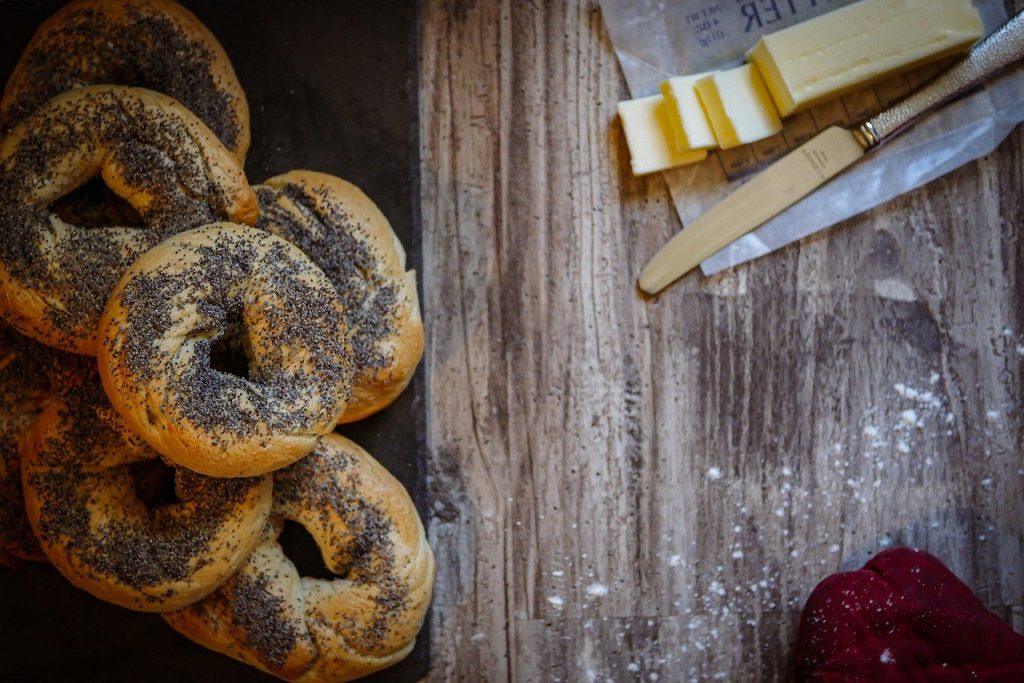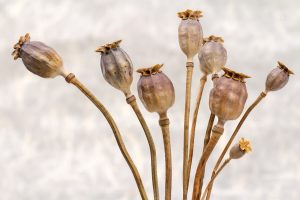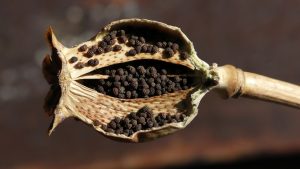All fields are required
Posted in Our Blog on December 11, 2024

Could your poppy seeds bagel soon be contraband? Risks associated with poppy seeds prompts proposed legislation. But your “everything” bagel is likely not impacted by the new laws.
Or is it?
Here’s what we know about the proposed legislation on poppy seeds and how it may impact your bagel choices.
Those little black seeds seem so harmless. So why do they come up in such serious topics about opioid abuse and legislation to help prevent it?
Turns out, the simple poppy seed produced by the Papaver somniferum (poppy) plant is a source of opium.
Opium? The drug?
Also known as Ah-pen-yen, Aunti, Aunti Emma, Big O, Black Pills, Chandoo, Chandu, Chinese Molasses, Chinese Tobacco, Dopium, Dover’s Powder, Dream Gun, Dream Stick, Dreams, Easing Powder, Fi-do-nie, Gee, God’s Medicine, Gondola, Goric, Great Tobacco, Guma, Hop/hops, Joy Plant, Midnight Oil, Mira, O, O.P., Ope, Pen Yan, Pin Gon, Pox, Skee, Toxy, Toys, When-shee, Ze, and Zero.
Yep. That opium.
The seed pods of poppy flowers contain compounds that may sound familiar to you. Morphine and codeine.
Opioid medicines.
The use of poppy seed pods dates back as early as 5000 B.C. and continues to be cultivated in many countries across the world.
The beautiful bright red flowers of the poppy plant are quite iconic. Within these flowers holds the power of the plant for medicine and other historically cultivated uses.

Image by Katharina N. from Pixabay
Once the flower dies, the pod remains.

Image by andreas N from Pixabay
This is where the opioid concern begins.
For culinary purposes, these pods are dried and then opened to reveal the delicate seeds within.

Image by Andy Faeth from Pixabay
However, prior to drying, the pods contain a milky white substance.
Historically, this milky fluid is scaped from the pod and air-dried to produce what is known as opium.
When used for pharmaceutical purposes, the “industrial poppy straw process” extracts the alkaloids from the mature dried plant. These alkaloids are later used in the manufacture of narcotics and opioid-based medications.
You may be asking yourself a very common question. If poppy seeds are so bad, then why are they so readily available.
You will be relieved to know that there is very little risk of consuming properly cleaned commercially available poppy seeds.
It is the unwashed versions used for “medicinal teas” and non-pharmaceutical drugs that the real risks lay. But that isn’t entirely fool-proof.
There have been anecdotal evidence that have led to scenarios like the famed Seinfeld episode, The Shower Head. In this sitcom classic, Elaine’s consumption of a poppy seed bagel breakfast caused her to test positive for opium on her physical. Eliminating her chances of a work trip to Africa.
According to other anecdotal evidence, mothers have been reported to be separated from their children after failing a drug test after eating lemon poppy seed bread or everything bagels.
“It’s not an urban legend” warns the US Department of Defense in 2023. According to a memo to military personnel, “eating poppy seeds can cause diners to test positive for codeine on a urinalysis.” The poppy seed memo calls on the Army, Navy, and Air Force branches “to avoid consumption of all poppy seeds, including food products and baked goods containing poppy seeds.”
Athletes were also warned in a similar missive by the US Anti-Doping Agency.
The problem is so great, The Center for Science in the Public Interest petitioned the US Food and Drug Administration (FDA) in 2021 to limit the opiate content of poppy seeds. More than three years later, after no apparent response, the organization sued the agency to force action.
Meanwhile, legislators have been moving to create laws on the topic. However, action has stagnated.
Risks associated with commercially produced culinary poppy seeds are still minimal. However, the rise in popularity of unwashed poppy seeds for homeopathic medical use or even recreational use is the biggest issue.
In some cases, people are making a tea with the unwashed poppy seeds to extract the opium alkaloid. A simple process with easily attainable ingredients. In fact, unwashed poppy seeds are widely available on the Internet on both public and private websites.
People consume unwashed poppy seed tea for a variety of reasons. Some do so for asthma or cough, others for treatment of infections
The opium alkaloids (commonly morphine and codeine) bind to opioid receptors, producing psychoactive and pharmacological effects like analgesia, euphoria, respiratory depression, decreased gastrointestinal motility, and physical/psychological dependence.
Effects similar to other Schedule II opioid analgesics like oxycodone, hydrocodone, oxymorphone, and others have been reported.
Overdose is a serious concern.
One study states that least 12 deaths have been reported in scientific literature associated with use of unwashed poppy seed tea.
Other reports claim at least 19 deaths associated with contaminated poppy seeds.
The proposed legislation, known as the Stephen Hacala Poppy Seed Safety Act, is named after a 24-year-old from Fayetteville, Arkansas who died from morphine intoxication following consumption of contaminated poppy seeds.
This legislation would present unsafe levels of opioids in poppy seeds as adulterants in food. It would apply to “food that is or contains poppy seeds.” A maximum level for contamination would be established and place these products under the Controlled Substances Act.
So, should you skip your “everything” bagel or lemon poppy seed scone? That is a personal choice.
But you should for sure pass on unwashed poppy seed tea!
If you’d like to know more about food safety topics in the news, like “Poppy Seeds Risk Prompts Proposed Legislation. But There is More to It Than the Typical Bagel,” check out the Make Food Safe Blog. We regularly update trending topics, foodborne infections in the news, recalls, and more! Stay tuned for quality information to help keep your family safe, while The Lange Law Firm, PLLC strives to Make Food Safe!
By: Heather Van Tassell (contributing writer, non-lawyer)